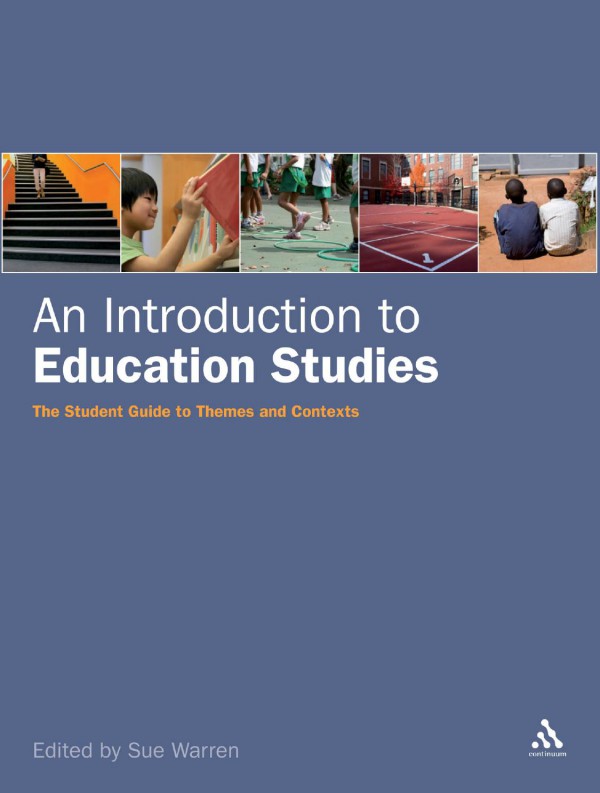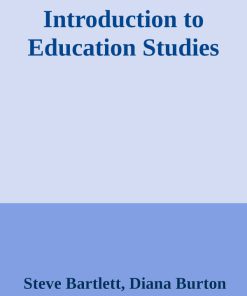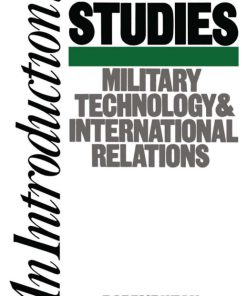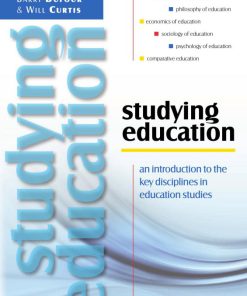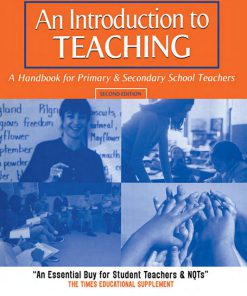Introduction to Education Studies The Student Guide to Themes and Contexts 1st edition by Sue Warren ISBN ‎ 0826499198 978-0826499196
$50.00 Original price was: $50.00.$25.00Current price is: $25.00.
Authors:Sue Warren , Series:Education [389] , Author sort:Warren, Sue , Languages:Languages:eng , Published:Published:May 2011 , Publisher:Continuum
Introduction to Education Studies: The Student Guide to Themes and Contexts 1st edition by Sue Warren – Ebook PDF Instant Download/Delivery. 0826499198, 978-0826499196
Full download Introduction to Education Studies: The Student Guide to Themes and Contexts 1st edition after payment
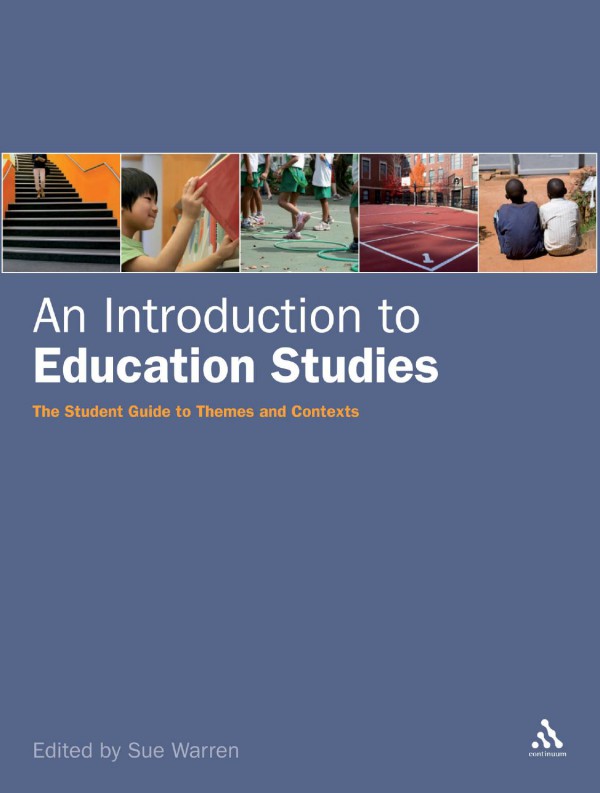
Product details:
ISBN 10: 0826499198
ISBN 13: 978-0826499196
Author: Sue Warren
An Introduction to Education Studies presents a concise overview for students who are new to this area of academic study.
Part 1 introduces the reader to the main themes they will encounter in their study of education such as the sociology of education, the philosophy of education, comparative education, and ethics for educators.
Part 2 explores the contexts within which education takes place in order to stimulate further thinking about education in action. Issues such as disaffection, pupil voice and breaking barriers to learning are introduced to give the reader a feel for such issues and how they might approach them.
Through discussions of relevant literature and research, and the use of case studies and exploratory activities, students are encouraged to actively engage with their learning about theories and disciplines within the study of education and the contexts in which learners live and work. Each chapter is written in an accessible style and provides the reader with start points for further study.
This book serves as a true course companion to meet the needs of students and lecturers working on Education Studies programmes. Prospective teachers may also find the book of interest as the subject matter is discussed in terms of theory and practical applications in a range of educational contexts.
Introduction to Education Studies: The Student Guide to Themes and Contexts 1st Table of contents:
Part I: Theories and Foundations of Education
-
Introduction: What is Education Studies?
- Defining education studies as an interdisciplinary field
- The importance of understanding education in historical, social, and cultural contexts
- Key debates in education studies: Access, equality, and quality
-
Key Theories of Education
- Philosophical foundations: Pragmatism, constructivism, and essentialism
- Learning theories: Behaviorism, cognitive development, and social learning
- The role of education in society: Functionalism, conflict theory, and postmodern perspectives
-
Educational Psychology
- Understanding how students learn: Cognitive, emotional, and social development
- The role of motivation and engagement in learning
- Theories of intelligence and differentiated learning
Part II: Education and Society
-
The Role of Education in Society
- Education as a social institution: Roles, functions, and purposes
- Socialization and the transmission of culture through education
- The impact of education on social mobility and inequality
-
Education and Social Justice
- Education as a tool for social change and equality
- Addressing issues of race, gender, class, and disability in education
- Critical pedagogy and the work of Paulo Freire
-
Global Perspectives on Education
- Comparative education: Education systems across the world
- The global challenges of access to education and educational equity
- Education for sustainable development and global citizenship
Part III: Curriculum and Pedagogy
-
Curriculum Development
- What is curriculum? Defining the core concepts and types of curriculum
- Theories of curriculum design: Content-focused, learner-centered, and competency-based approaches
- Curriculum reform: National and international movements
-
Pedagogical Approaches
- Traditional vs. progressive education: Teacher-centered vs. student-centered teaching
- Collaborative learning and inquiry-based approaches
- Technology in education: Blended and online learning
-
Assessment in Education
- The role of assessment in learning and teaching
- Types of assessments: Formative, summative, diagnostic, and authentic assessments
- The debate over standardized testing and alternative forms of assessment
Part IV: Education Policy and Practice
-
Education Policy and Governance
- The role of government, institutions, and policy in shaping education
- Education funding, governance models, and decentralization
- Key policies: Inclusive education, early childhood education, and higher education access
-
Teaching and Learning in Practice
- The teacher’s role: Pedagogical skills and classroom management
- Understanding student diversity and addressing individual needs
- The challenges of inclusive teaching and supporting special educational needs
-
Education in the 21st Century
- The changing nature of education in the digital age
- The rise of lifelong learning and the role of non-formal education
- Innovations in education: Gamification, flipped classrooms, and personalized learning
Part V: Issues and Challenges in Education
-
Educational Inequality
- The causes and consequences of inequality in education
- Addressing disparities in educational outcomes: Race, gender, and socio-economic status
- Strategies for promoting educational equity and inclusion
-
Education and Technology
- The digital divide and access to educational technology
- Online learning: Opportunities and challenges in virtual education
- The role of artificial intelligence and educational software in the future of learning
-
The Future of Education
- Emerging trends and challenges for the future of education
- Education for a globalized world: Preparing students for the future workforce
- The role of education in addressing global issues: Climate change, health, and social justice
Part VI: Conclusion
- Conclusion: Reflecting on Education Studies
- Key takeaways from the study of education
- The importance of a multidisciplinary approach to education
- Continuing the journey: Further study and career paths in education studies
People also search for Introduction to Education Studies: The Student Guide to Themes and Contexts 1st:
introduction to education research
introduction to education course
introduction to education class
introduction to education textbook pdf
introduction to education syllabus
You may also like…
eBook PDF
Introduction to Public Relations 1st Edition by Sue Wolstenholme ISBN 0273750992 9780273750994

